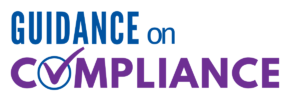What is a “mock” survey?
Having a practice run before the State or Federal Surveyors come into your Skilled Nursing Facility (SNF) can be valuable. A mock survey provides nursing home leaders with the opportunity to assess systems, procedures, and processes of care. Mock surveys offer a realistic and honest view of the following areas:
- Are staff operating at the highest level possible?
- Are residents and families happy?
- Are there compliance or high-risk problem areas to address?
Below are five reasons why engaging with a consultant to conduct a mock survey is the best way to prepare for the survey process and to improve quality of care.
1. Allows a critical review of systems and procedures by an expert that is not part of your organization.
Many facilities elect to conduct their own mock surveys. While this is admirable and should be integrated into routine operations, oftentimes an internal mock survey team may overlook valuable information an outsider could identify. Consultants specifically trained in compliance and risk factor areas know what to look for; and more importantly, they think like a healthcare facility surveyor. Experienced consultants know state and federal regulations.
2. Identify inconsistencies in practices.
Often practices and systems that you thought were in place have gone by the wayside for several reasons. With or without adequate staffing, staff will often find work arounds to perform their tasks. Many current practices, systems, and policies and procedures identified do not meet the regulations. In today’s challenging environment it is difficult to keep up with all the details required daily. A consultant can help identify inconsistencies in processes, systems, and policy and procedures as they compare to the current regulations. Changes should be in place prior to the survey team’s arrival.
3. Identify weaknesses in staff performance.
When state and federal surveyors visit facilities, they are looking to make sure staff are aware and educated in their roles. In a healthcare setting, engaged employees are the backbone of the organization. Quality of care and resident satisfaction depend on staff interaction. State and federal surveyors will assess whether staff are aware of plans of care. Do they understand the residents’ needs? How do they interact with residents? How long does it take for staff to respond to and/or assist a resident? How do they carry themselves within the facility? Working with an unbiased and experienced consultant to identify weaknesses or areas of needed improvement will offer insight into whether or not there could be a potential staffing issue within your facility or if there is a need for additional education.
4. Offer residents and their family members a platform to speak their mind.
In an actual state or federal inspection, residents and often family members will be interviewed. It is critical to identify the perception and opinion of others—particularly those receiving the care prior to hearing it from the actual surveyor. Mock surveys conducted by a third-party allow residents to express their opinions more freely, without fear of intimidation. The survey will provide awareness in areas that could otherwise be overlooked if conducted by an internal team. Do residents feel cared for and safe? Do they feel like their privacy is of the utmost concern to members of the care team? Are they afforded opportunities for social engagement? Do they have a choice in ADL care delivery? Surveyors will use the answers to these and other questions to get an idea of life and culture within the facility. Discoveries during the personal interviews can become the basis for deficiencies. So be proactive. Use the mock survey process as a tool to address issues before the state and federal surveyors come knocking.
5. Improve Quality and focus on areas of improvement.
A mock survey can provide a great opportunity to focus on areas that need improvement within your facility. Facilities should be proactive and use their quality assurance performance improvement (QAPI) process to prioritize opportunities, address gaps in systems and processes, develop and implement corrective action plans, and continuously monitor effectiveness of interventions. Quality improvement initiatives can often prevent deficiencies, improve quality of care, and enhance resident outcomes.
LW Consulting, Inc. (LWCI) offers a comprehensive range of services that can assist your organization in maintaining compliance, identifying trends, providing education and training, or conducting documentation and coding audits. For more information, contact LWCI to connect with one of our experts!


